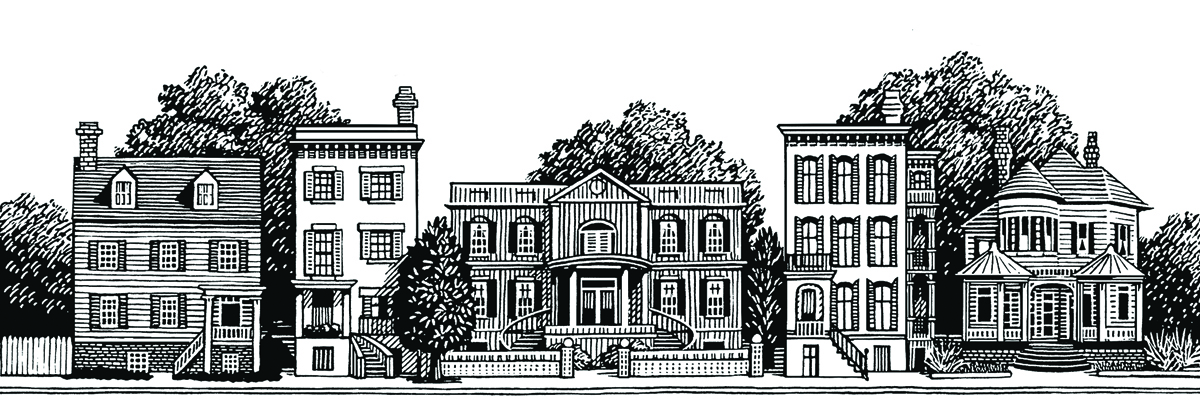The Philosophy of Furniture

Illustrations by Elizabeth Traynor/Gerald and Cullen Rapp
There is reason, it is said, in the roasting of eggs, and there is philosophy even in furniture—a philosophy nevertheless which seems to be more imperfectly understood by Americans than by any civilized nation upon the face of the earth.
In the internal decoration, if not in the external architecture of their residences, the English are supreme. The Italians have but little sentiment beyond marbles and colors. In France, meliora probant, deteriora sequuntur—the people are too much a race of gadabouts to study and maintain those household proprieties of which, indeed, they have a delicate appreciation, or at least the elements of a proper sense. The Chinese and most of the eastern races have a warm but inappropriate fancy. The Scotch are poor decorists. The Dutch have merely a vague idea that a curtain is not a cabbage. In Spain they are all curtains—a nation of hang men. The Russians do not furnish…. The Yankees alone are preposterous.
How this happens, it is not difficult to see. We have no aristocracy of blood, and having therefore as a natural, and indeed as an inevitable thing, fashioned for ourselves an aristocracy of dollars, the display of wealth has here to take the place and perform the office of the heraldic display in monarchical countries. By a transition readily understood, and which might have been easily foreseen, we have been brought to merge in simple show our notions of taste itself.
To speak less abstractedly: In England, for example, no mere parade of costly appurtenances would be so likely as with us, to create an impression of the beautiful in respect to the appurtenances themselves—or of taste as respects the proprietor: This for the reason, first, that wealth is not, in England, the loftiest object of ambition as constituting a nobility; and secondly, that there, the true nobility of blood rather avoids than affects costliness in which a parvenu rivalry may be successfully attempted, confining itself within the rigorous limits, and to the analytical investigation, of legitimate taste.
The people will naturally imitate the nobles, and the result is a thorough diffusion of a right feeling. But in America, dollars being the supreme insignia of aristocracy, their display may be said, in general terms, to be the sole means of the aristocratic distinction; and the populace, looking up for models, are insensibly led to confound the two entirely separate ideas of magnificence and beauty. In short, the cost of an article of furniture has at length come to be, with us, nearly the sole test of its merit in a decorative point of view—and this test, once established, has led the way to many analogous errors, readily traceable to the one primitive folly….
Carpets are better understood of late than of ancient days, but we still very frequently err in their patterns and colors. A carpet is the soul of the apartment. From it are deduced not only the hues but the forms of all objects incumbent. A judge at common law may be an ordinary man; a good judge of a carpet must be a genius. Yet I have heard fellows discourse of carpets with the visage of a sheep in reverie—d’un mouton qui rêve—who should not and who could not be entrusted with the management of their own moustachios.
The abomination of flowers, or representations of well-known objects of any kind, should never be endured within the limits of Christendom. Indeed, whether on carpets, or curtains, or paper-hangings, or ottoman coverings, all upholstery of this nature should be rigidly Arabesque. Those antique floor-cloths which are still seen occasionally in the dwellings of the rabble—cloths of huge, sprawling, and radiating devices, stripe-interspersed, and glorious with all hues, among which no ground is intelligible—are but the wicked invention of a race of time-servers and money-lovers—children of Baal and worshippers of Mammon—men who, to save trouble of thought and exercise of fancy, first cruelly invented the kaleidoscope, and then established a patent company to twirl it by steam.

Illustration by Elizabeth Traynor/Gerald and Cullen Rapp


